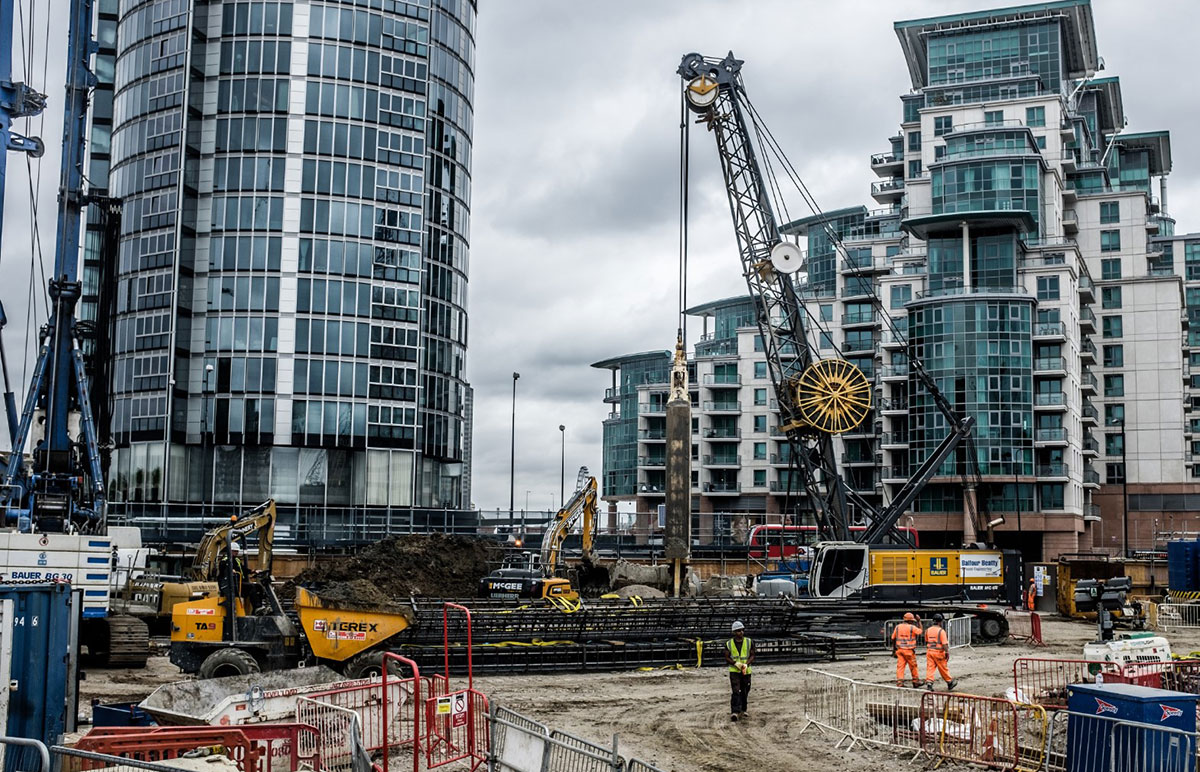What Does Geotheta Mean?
What Does Geotheta Mean?
Blog Article
Not known Incorrect Statements About Geotheta
Table of ContentsThe 4-Minute Rule for GeothetaGeotheta Things To Know Before You Get ThisGeotheta for DummiesThe Basic Principles Of Geotheta The smart Trick of Geotheta That Nobody is Discussing

They carry out site investigations, accumulate examples, perform research laboratory tests, and evaluate data to assess the suitability of the ground for building and construction projects - Engineer of Record. Based upon their findings, geotechnical engineers offer referrals for foundation design, incline stability, maintaining frameworks, and reduction of geotechnical threats. They team up with various other specialists, such as architects, architectural designers, and construction groups, to make certain that geotechnical factors to consider are incorporated right into the total task layout and implementation
By evaluating the behavior and residential properties of dirt and rock, they can recognize potential geotechnical dangers such as landslides, soil settlement, or incline instability. Their proficiency assists avoid failures or accidents that could jeopardize lives and home. Here are some detailed duties and duties of a geotechnical designer: Website Investigation: Geotechnical designers conduct site investigations to collect data on subsurface conditions.
They analyze the information to recognize the residential or commercial properties and behavior of the soil and rock, including their strength, permeability, compaction qualities, and groundwater conditions. Geotechnical Analysis and Design: Geotechnical engineers analyze the data collected throughout site examinations to analyze the stability and viability of the site for construction jobs. They execute geotechnical estimations and modeling to examine aspects such as bearing capacity, negotiation, slope stability, lateral planet pressures, and groundwater flow.
The Best Guide To Geotheta
Structure Design: Geotechnical designers play an essential function in designing foundations that can safely sustain the designated structure. They analyze the soil problems and load demands to identify the appropriate foundation kind, such as shallow structures (e.g., footings), deep structures (e.g (https://www.dreamstime.com/ianhammond2191_info)., stacks), or specialized methods like soil improvement. They take into consideration variables such as settlement limitations, birthing ability, and soil-structure interaction to develop optimum structure designs
They review building and construction plans, monitor website activities, and conduct area examinations to validate that the style recommendations are followed. If unanticipated geotechnical issues arise, they analyze the circumstance and offer recommendations for removal or changes to the style. Risk Analysis and Mitigation: Geotechnical designers assess geotechnical dangers and dangers related to the job site, such as landslides, liquefaction, or dirt erosion.

Collaboration and Interaction: Geotechnical engineers function carefully with various other experts associated with a job, such as designers, architectural designers, and building teams. Reliable communication and cooperation are necessary to integrate geotechnical factors to consider into the overall job design and building procedure. Geotechnical designers offer technological know-how, answer inquiries, and ensure that geotechnical demands are met.
Some Known Incorrect Statements About Geotheta
Here are some sorts of geotechnical designers: Structure Designer: Foundation engineers focus on making and analyzing foundations for structures. They examine the dirt problems, lots needs, and site qualities to figure out one of the most ideal structure kind and design, such as shallow foundations, deep foundations, or specialized techniques like pile structures.
They review the variables influencing slope security, such as dirt residential or commercial properties, groundwater conditions, and slope geometry, and develop techniques to avoid slope failures and reduce risks. Earthquake Designer: Quake designers focus on examining and creating structures to stand up to seismic pressures. They analyze the seismic danger of a website, assess soil liquefaction possibility, and establish seismic style criteria to ensure the safety and strength of structures during quakes.
They execute area testing, collect examples, and examine the gathered data to identify the soil buildings, geologic developments, and groundwater problems at a website. Geotechnical Instrumentation Designer: Geotechnical instrumentation designers concentrate on tracking and gauging the habits of dirt, rock, and structures. They install and keep instrumentation systems that keep an eye on elements such as soil negotiation, groundwater levels, incline movements, and architectural variations to analyze efficiency and offer very early warnings of possible issues.
Unknown Facts About Geotheta
They conduct examinations such as triaxial tests, loan consolidation examinations, straight shear examinations, and permeability tests to collect data for geotechnical analysis and style. Geosynthetics Designer: Geosynthetics engineers specialize in the design and application of geosynthetic products, such as geotextiles, geogrids, and geomembranes. They make use of these materials to improve soil security, enhance slopes, offer drain services, and control disintegration.
They often tend to be investigative individuals, which indicates they're intellectual, reflective, and curious. They wonder, systematic, rational, logical, and sensible. A few of them are also social, suggesting they're kind, charitable, cooperative, person, caring, handy, understanding, sensible, and friendly. see this here Does this seem like you? Take our totally free job test to discover out if geotechnical engineer is among your top job matches.
In the workplace setting, geotechnical designers use specialized software program devices to do calculations, create styles, and assess information. They prepare reports, testimonial job requirements, interact with clients and employee, and coordinate task tasks. The office setup supplies a helpful atmosphere for research study, analysis, and cooperation with other experts included in the job.
Not known Facts About Geotheta
They frequently visit project websites to perform site investigations, assess geotechnical conditions, and gather information for evaluation. These sees entail taking a trip to various locations, in some cases in remote or difficult surfaces. Geotechnical engineers might execute dirt sampling, conduct tests, and monitor construction activities to make sure that the geotechnical facets of the project are being executed appropriately.
Geotechnical engineers also operate in specialized geotechnical labs. In these facilities, they perform experiments, execute examinations on dirt and rock samples, and analyze the design homes of the products. Geotechnical research laboratory engineers function extensively in these settings, dealing with testing tools, operating instruments, and videotaping data. They team up with various other laboratory staff to ensure accurate and reliable testing results.
Report this page